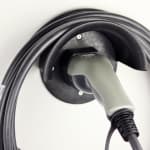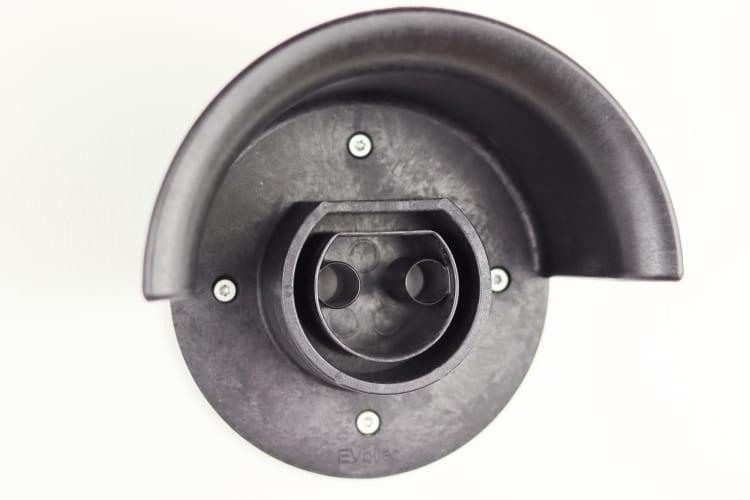
The Danish manufacturer EVBiler ApS was looking for a more environmentally friendly and material-smart solution for one of their products. Polykemi Group provided them with the optimal material that reduced their CO₂ footprint by more than 80%.
For nearly 20 years, Polykemi ApS in Denmark has worked closely with Borring Plast A/S, a Danish company that has been a pioneer in injection moulding of plastic components for the industry since established in 1964. Their end customer EVBiler ApS, like so many other companies, wants to constantly improve their environmental profile.
"Over recent years, the trend has been clear. More companies have a green profile and are working to improve their choice of materials. They want to use world-class customer adapted materials, that also lower their carbon footprint," says Mr. Martin Lindegaard Pedersen, Project Manager at Borring Plast A/S.
"When EVBiler ApS contacted us with their request, I immediately turned to Polykemi. They have the knowledge on how to change the material to a more environmentally friendly alternative, while maintaining function, quality and color," continues Lindegaard Pedersen.

Increasing demand for high quality and low CO₂ footprint
EVBiler ApS manufactures and sells products for electric and hybrid cars, mobile and stationary charging stations and various related accessories. The company has a strong environmental profile and therefore wanted to change the material in one of its flexible holders for charging cables. It was originally made in ABS and printed by a 3D printer, but as demand increased, EVBiler ApS wanted to change the manufacturing technique to injection moulding. They then gave their partner Borring Plast A/S the task of finding a material that has the same function, in the same high quality, but with a lower environmental impact.
"Historically, many customers focused primarily on having a low material cost, but today there is more interest in developing sustainable products that reduce the carbon footprint, without compromising on function or quality," says Mr Ole Tietze, sales and technical support for Polykemi in Denmark and Benelux.
"This project with Borring Plast A/S and EVBiler ApS is really about cooperation and being material smart, i.e. finding the right material for the right product, adapted to the customer's mechanical requirements while also being environmentally friendly," Tietze continues.

Switching from ABS to recycled PP resulted in major CO₂ savings
Initially, the parties discussed whether to continue with their current material choice ABS or whether a recycled ABS could be an option, but after listening carefully to the customer's needs and demand profile, the experts at Polykemi and Rondo Plast suggested a recycled PP with 20% glass fibre - a REPRO PP RG124. The material change meant a saving of 4.25 kg of CO₂ per kilo of material, which means a CO₂ saving of more than 80%.
"The choice was based on the fact that we wanted the same strength of the material but with lower CO2 emissions. We also looked at the recycling of the material after the lifetime of the product," says Tietze.
"We had been developing the product for a long time and were about to start production in China when we realized that the price was not competitive in terms of transport and other factors," explains Mr. Michael Ford Folkmann, CEO of EVBiler ApS.
"Since EVbiler Aps wants to have a green profile, it was natural to have our product manufactured locally in Denmark. It has also saved us a lot of problems with transport etc. Martin at Borring Plast suggested that we should try a new product from Polykemi, based on recycled plastic, and it turned out to be a great solution," Ford Folkmann continues.
In 2021, Polykemi Group conducted a scientific study and developed a new simulation tool to demonstrate the CO₂ footprint of their materials when they leave the company's factories in Ystad, Sweden and Kunshan, China. Once Polykemi has completed its new manufacturing facilities in Chongqing, China, and in Gastonia, NC, USA, similar studies will also be conducted there.



